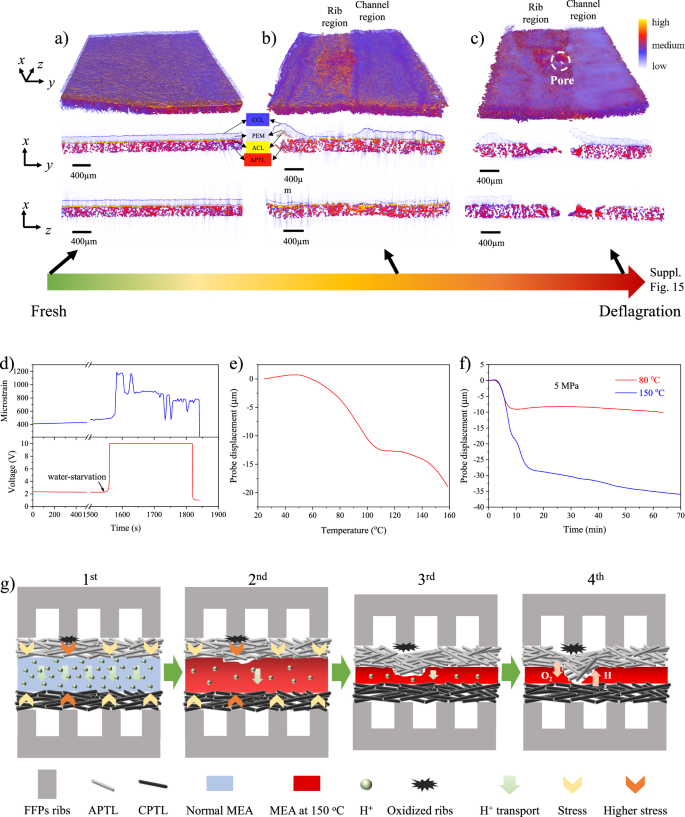Congrats to Prof. Tan Aidong on Nat. Commun. publication
文章来源: 发布日期: 2025-11-04
Proton exchange membrane water electrolysis attracts worldwide attention as a promising technology for green H2 production and renewable energy storage, yet the safety considerations in the industrial-scale operations are largely overlooked. Herein, localized deflagration in 100 kW and 2 kW proton exchange membrane water electrolysis stacks are reported. Water-starvation induced by flow channel obstruction is identified as the cause of the incident. The incident is reproduced in single electrolyzers, with the membrane electrode assembly deflagration process captured in-situ and studied. Physicochemical analysis and simulations reveal that water-starvation reduces membrane conductivity by 100-fold, generating large Joule heating to elevate membrane electrode assembly temperature above 150 oC, which softens membrane and leads to perforation under thermomechanical stress, subsequent H2 - O2 mixing and deflagration. Safety precautions are established, including materials and component designs, and monitoring strategies, with methods enabling early warning of deflagration in a 5 kW differential pressure stack. This work proposes both the fundamental understanding of deflagration mechanisms and practical guidelines for safe industrial scale-up of proton exchange membrane water electrolysis technology.





